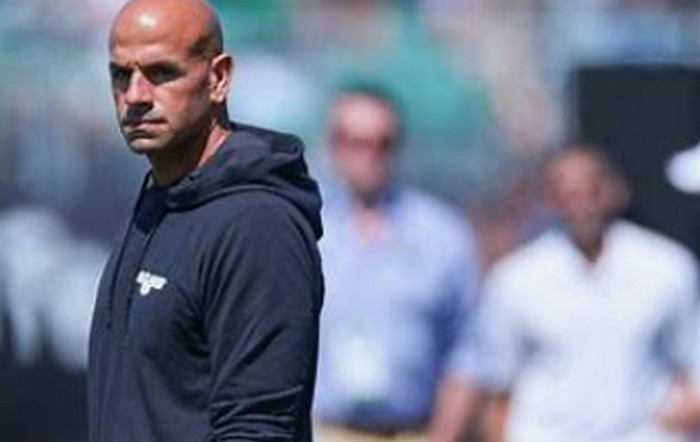Continue
Sent by Copilot:
The New York Jets’ decision to fire head coach Robert Saleh just five games into the 2024 NFL season has sparked significant debate among fans and analysts alike. Let’s delve into the reasons behind this decision and whether it was justified.
Background and Context
Robert Saleh was hired by the Jets in 2021 after a successful stint as the defensive coordinator for the San Francisco 49ers. His hiring brought hope to a franchise that had struggled for years, particularly on the defensive side of the ball. Saleh was known for his energetic and motivational coaching style, which many believed would translate well to a head coaching role.
Performance Under Saleh
During his tenure, Saleh managed to improve the Jets’ defense significantly. In fact, the Jets’ defense was often ranked among the top units in the league1. However, the offensive side of the ball remained a persistent issue. Despite multiple changes in offensive coordinators and the acquisition of high-profile players like Aaron Rodgers, the Jets’ offense consistently underperformed1.
Saleh’s overall record with the Jets was 20-36, which included three consecutive losing seasons1. The 2024 season started with high expectations, especially with Rodgers at the helm. However, a 2-3 start, including a disappointing loss in London, was enough for the Jets’ management to pull the trigger1.
Key Reasons for the Firing
Inconsistent Offensive Performance: Despite having a strong defense, the Jets’ offense struggled mightily. They ranked in the bottom 10 in both yards and points per game during Saleh’s tenure1. This imbalance made it difficult for the team to win games consistently.
Quarterback Instability: Saleh had to deal with a revolving door at the quarterback position. Over his 56 games as head coach, the Jets started six different quarterbacks, including Zach Wilson, Mike White, Joe Flacco, Trevor Siemian, Tim Boyle, and Aaron Rodgers1. This lack of stability at the most crucial position in football undoubtedly hampered the team’s performance.
High Expectations and Disappointing Results: The acquisition of Aaron Rodgers raised expectations significantly. However, an Achilles injury to Rodgers early in the 2023 season and subsequent offensive struggles in 2024 led to mounting frustration among fans and management1.
Internal Tensions: Reports suggest there were tensions between Saleh and Rodgers, particularly after Saleh fined Rodgers for missing minicamp for a pre-planned trip to Egypt1. Such internal conflicts can disrupt team chemistry and performance.
Timing of the Decision
The timing of Saleh’s firing, just five games into the season, is unusual. Historically, mid-season firings are rare, especially for coaches with a .400 or better winning percentage early in the season2. However, the Jets’ management likely felt that a change was necessary to salvage the season and keep their playoff hopes alive.
Was the Decision Justified?
The decision to fire Saleh can be seen from multiple perspectives:
From a Performance Standpoint: The Jets’ inability to field a competitive offense despite significant investments and changes was a major factor. Saleh’s defensive prowess was evident, but his inability to address offensive issues ultimately led to his downfall1.
From a Management Perspective: The Jets’ management likely believed that a change was necessary to spark the team and improve their chances in a competitive AFC East. The move to promote defensive coordinator Jeff Ulbrich as interim head coach suggests a desire to maintain defensive stability while seeking new offensive solutions1.
From a Player and Fan Perspective: The firing may have been seen as a necessary step to address the team’s struggles and meet the high expectations set by the acquisition of Rodgers. However, it also raises questions about the stability and direction of the franchise.
Conclusion
The firing of Robert Saleh by the New York Jets was a complex decision influenced by multiple factors, including performance issues, quarterback instability, high expectations, and internal tensions. While Saleh’s defensive acumen was never in doubt, his inability to field a competitive offense ultimately led to his dismissal. Whether this decision will pay off for the Jets remains to be seen, but it underscores the high stakes and pressures of coaching in the NFL.
